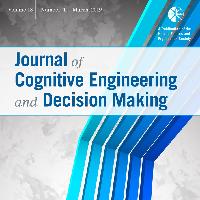Abstracto
-
AUTHORS
- Show all
- Helen Altman Klein
- Mei-Hua Lin
- Laura G. Militello
- Joseph B. Lyons
- Jessica Grace Finkeldey
ABSTRACTTrust assessment can be difficult during cross-cultural social and professional interactions. Structured interviews were used to contrast how young adults from three culturally distinct samples evaluate trustworthiness: Malaysia (Chinese), an Asian group; Panama, a Latin American group; and the United States, a Western group. The role of context in trust judgments (e.g., school, work, social encounters, encounters with strangers, encounters with danger) on the assessment of trustworthiness was examined. Findings affirm the importance of Mayer’s constructs of ability, benevolence, and integrity—but benevolence and integrity appeared more often than expected in the U.S. sample and less often than expected in the Chinese/Malaysian sample. Hofstede’s power distance variable was frequently cited by the Chinese/Malaysian sample and less often by the U.S. sample. H. A. Klein’s cultural lens model includes affect, cited most by the Panamanians; nonverbal communication, cited least by the U.S. and most by the Chinese/Malaysian samples; and dialectical reasoning, cited most by the Chinese/Malaysian sample and hardly at all by the U.S. sample. The results document the important role of context for assessing trust. These results illustrate the risks of assuming that other cultures make judgments such as trust assessments the way that Western cultures do.
